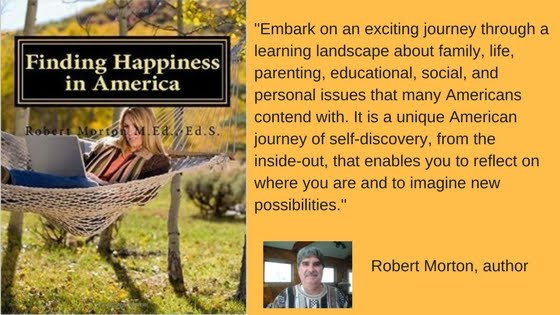Friday, January 21, 2011
(A-15) "BABY STEPS" APPROACH BEST TO CHANGE BAD HABITS
 for free videos and free articles on this topic.
for free videos and free articles on this topic.Dear Defeated- Sorry, but no self-respecting psychologist, counselor, pastor, rabbi, or advisor can avoid the term “baby steps” when discussing how one can change bad habits. It’s a drawn-out, difficult process. So, change one harmful habit at a time- work on it diligently before focusing on the next one. Multi-tasking doesn’t work in this business!
A powerful strategy to employ against bad habits is to first resolve what you want to become... to accomplish in life. Then, list all the good habits which are crucial for you to reach your dreams. Next, begin to undermine entrenched bad habits by deliberately attending to how good, but underutilized habits will empower you to succeed. The only difference between losers and winners is the differences in their heads.
It takes constant effort to eventually integrate good habits into your daily routine. You may be a slave to bad habits today, but you have the power to change, to become a ruler over good habits tomorrow. But, you must proceed in “baby steps”- initially set short, easily reachable goals and focus on replacing one bad habit at a time. While harmful behaviors become habitual almost immediately, admirable one’s worth the effort take at least a month or more of daily practice before they become routine.
Strange how good habits erode swiftly and catch hold sluggishly; inversely true for bad ones. But, if you candidly imagine the person you’d like to become and list the good habits you need to get there, you’ll no longer conceal (from yourself) how your current bad habits are imprisoning your future.
Lastly, read "Good Habits Can Be As Addictive As Bad Ones"
Robert Morton, M.Ed., Ed.S. has retired from his positions of school psychologist and adjuct professor in the School of Leadership and Policy Studies at Bowling Green State University. Questions, comments, or concerns about family, parenting, educational, or personal concerns? Contact him at the secure Bpath Mail Form. Visit the national Family Journal column.
Tuesday, January 18, 2011
(A-14) SOME "FRIENDSHIPS" SHOULD BE TERMINATED
 Note: Scroll down right margin to CODE "(A- SOCIOPATH)" for free articles and free videos on this topic.
Note: Scroll down right margin to CODE "(A- SOCIOPATH)" for free articles and free videos on this topic.Personally, I feel they can accomplish this Jekyll and Hyde act because they are “bystanders” in society. They internally lack remorse, empathy, and can’t love anyone. Thus, they learn to observe others laugh, cry, grow angry or show sadness, shame or guilt in various situations…then emulate these feelings that they never experienced.
Your friend isn’t a Charles Manson, Susan Smith (1994-killed two sons), Jeffrey Dahmer, John Wayne Gacy, Marybeth Tinning (1987- killed 9 of her children), Ted Bundy, Cathy Wood and Gwendolyn Graham (1980’s- both killed 5 elderly women) or David Berkowitz. Fortunately, most of the 2 million psychopaths in the U.S. aren’t murderers. In fact, I’d wager most reading this article have met a sociopath or two- they just never realized it. They can be a parent, friend, neighbor, co-worker or cousin, or business associate.
Dr. Stout says that as many as 4% of the population are conscienceless sociopaths who have no empathy or affectionate feelings for humans or animals. As Stout (The Myth of Sanity) explains, a sociopath is defined as someone who displays at least three of seven distinguishing characteristics, such as deceitfulness, impulsivity and a lack of remorse.
Such people often have a superficial charm, which they exercise ruthlessly in order to get what they want. Stout argues that the development of sociopathy is due half to genetics and half to nongenetic influences that have not been clearly identified. I recommend reading her book, "The Sociopath Next Door" (below). She gives three examples of such people, including Skip, the handsome, brilliant, superrich boy who enjoyed stabbing bullfrogs near his family's summer home, and Doreen, who lied about her credentials to get work at a psychiatric institute, manipulated her colleagues and, most cruelly, a patient.
Robert Morton, M.Ed., Ed.S. has retired from his positions of school psychologist and adjunct professor in the School of Leadership & Policy Studies at BGSU. Questions? Comments? Contact him at the secure Bpath Mail Form. Visit his national Family Journal column.
Wednesday, January 12, 2011
(A-13) IS YOUR TEEN A BINGE DRINKER?
Dear Mr. Morton- Are there any tests to determine if our son, age 16, is drinking too much? - Anonymous, Oak Harbor.
Dear Anonymous- I’m sure many parents like you have the same concern. Studies show that 8 percent of 8th graders, 16 percent of sophomores, and nearly ¼ of seniors drink 5+ drinks (binge drink) on the same occasion. About 5,000 youth under 21 die every year from car crashes, homicides, and suicides due to underage drinking (US Surgeon General report). Alcohol directly relates to 1,900 teen deaths from car crashes and 300 suicides each year.
I recommend the “Who Me?” interview (John Hopkins) for parents to use with teens and college students. I modified it to interview teens in my school psychology work. It’s straightforward and opens the door for subsequent discussion:
- Ever gotten into trouble at school or work because of alcohol?
- Ever been in trouble with the police because of alcohol?
- Do you drink to feel more relaxed around others?
- Do you drink to forget your worries?
- Do you drink to relax when you feel tense and nervous?
- Do you sometimes get drunk when you didn’t really intend to?
- Do you ever drink or before going to a party?
- Ever had a drink in the morning?
- Do you ever worry about your use of alcohol?
- Ever gotten into an argument or fight when drinking?
- Ever had times you cannot remember what happened while you were drinking?
- Ever felt guilty or “bummed out” after drinking?
- Ever turn to an inferior environment since using alcohol?
- Are you sometimes overwhelmed with feelings of loneliness or despair?
- Ever promised yourself that you would cut down on the use of alcohol and failed to keep that promise?
“Yes” to any five questions: Definitely an alcoholic problem. Get help for your teen, now!
“Yes” to four questions: Strong probability usage is causing problems in your child’s life.
Further Reading: Become more knowledgeable about teenage binge drinking. Also, easy to use alcohol testing kits:
Lastly, visit the Family Journal article “VI. Alcohol Abuse Research and Self-Assessment Of Your Relationship With Alcohol”.
Robert Morton, M.Ed., Ed.S. has retired from his positions of school psychologist and aqdjunct professor in the School of Leadership & Policy Studies at Bowling Green State University, in Ohio. Questions about family, parenting, educational, or personal issues? Contact him at the secure Bpath Mail Form. Visit the national Family Journal column.



